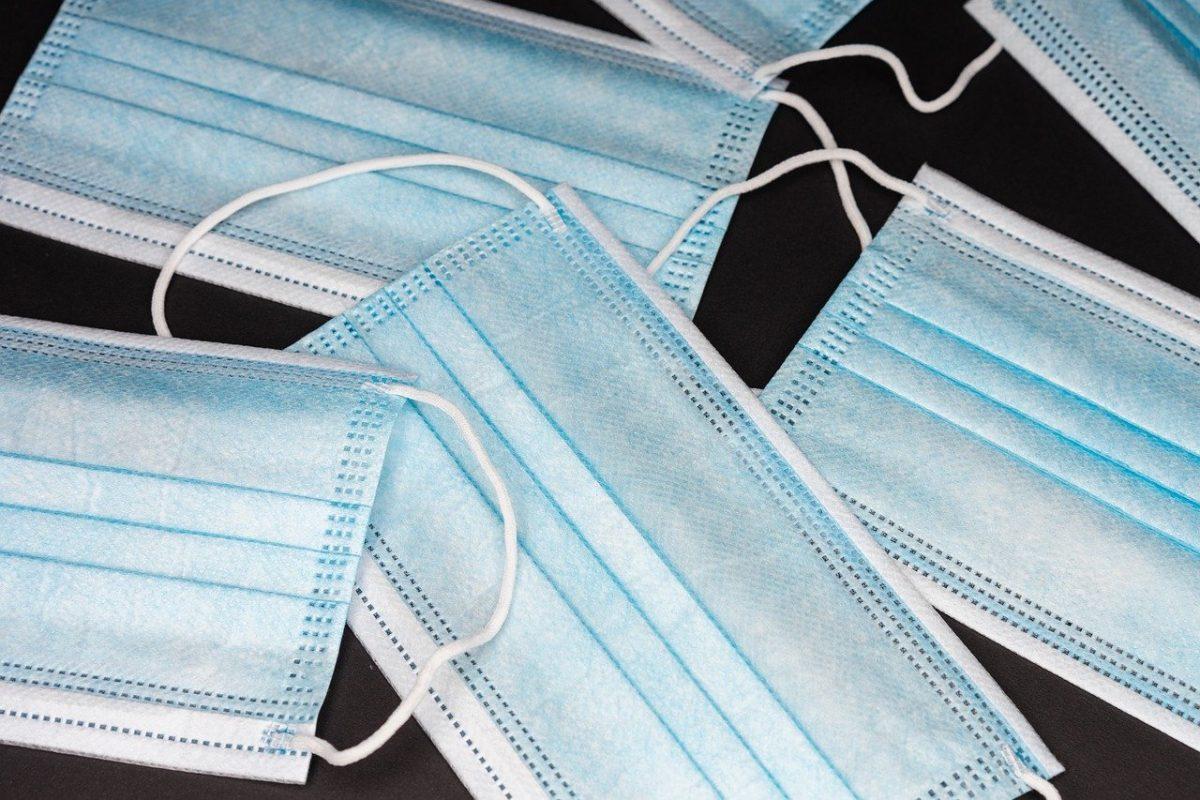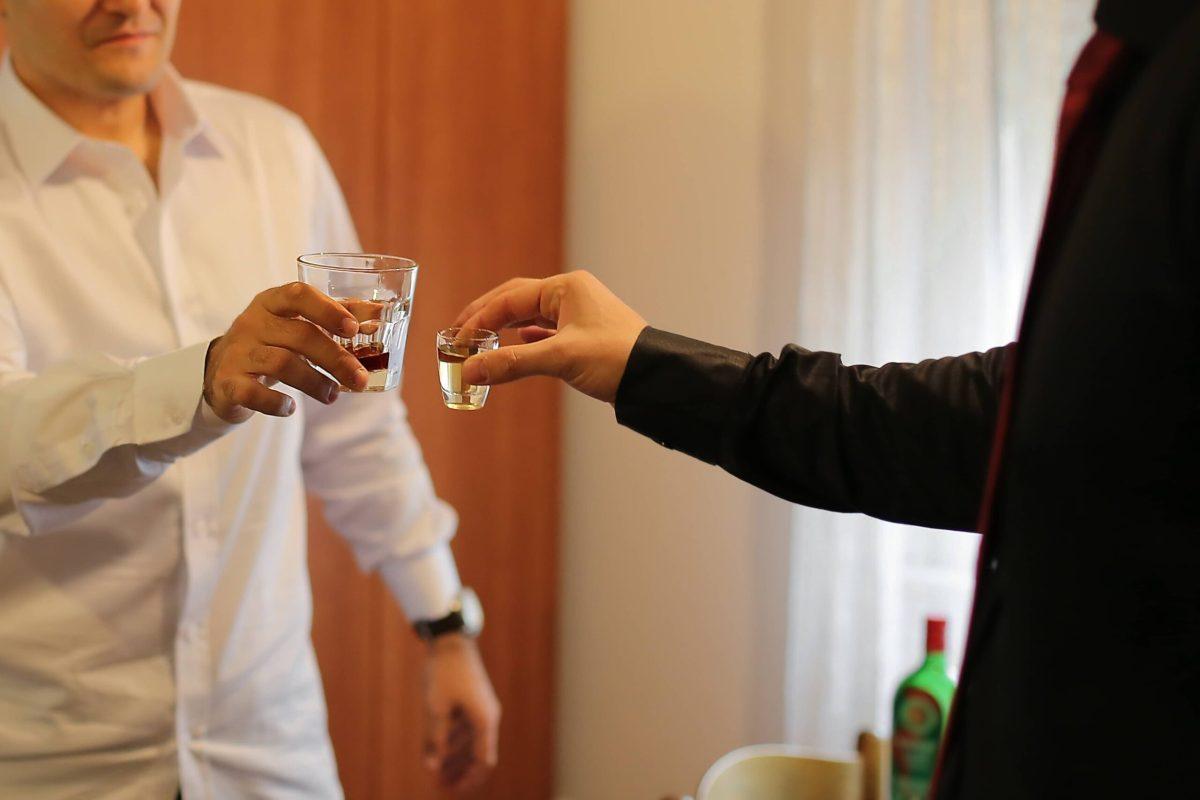On March 1, when Principal Gasparini spoke to club officers and team captains about the lifting of the mask mandate in schools the following day, one of his phrases really stood out to me. He said that there was no “right” answer between choosing to continue wearing masks or going maskless. However, to me, that statement is very flawed.
As Merriam-Webster defines it, “right” is to be “righteous, upright.” When you think of an upright citizen or a righteous individual, you generally think of someone who chooses their actions based on the good of the whole, right? Or, being “right” is “being in accordance with what is just, good, or proper.” Is it “just” to remove the strongest barrier in preventing the transmission of this highly contagious, life-threatening virus? Is it “good” to risk other people’s health in exchange for comfortability? Is it “proper?” And, finally, being “right” means “conforming to facts or truth.” Research and data have consistently shown that masks are an integral part of protective efforts against COVID-19. It’s a known, proven fact.
Yet, somehow, there is no “right” answer in this debate?
But on March 2, when the mask mandate was officially lifted in schools, I was surprised by what I saw. It was obvious that a large percentage of my peers didn’t see this debate as clear-cut as I did. While every class varies, walking through the hallways, I saw close to the majority — if not the majority — of students maskless. It was honestly disappointing.
The arguments I’ve consistently heard coming from those who support the end of the mask mandate are: “Masks make it too hard to breathe” or “Masks are uncomfortable,” and “Not seeing full faces is stunting children’s social and psychological development,” and “It’s about time we moved on from this pandemic.”
Firstly, I personally wear two masks every day throughout the entirety of the school day (except briefly at lunch and during band) and I can breathe just fine. I can make it through my entire P.E. class without having to pull down my mask once. This is because, as one study found, masks do not affect oxygen or carbon dioxide levels, even among those with lung conditions like severe chronic obstructive pulmonary disease. So, the perception of breathlessness comes from an individual focusing on the small amount of additional work it takes to breathe with a mask, often messing with their breathing rhythm. So, therefore, by concentrating on whatever you’re doing instead, your brain can be distracted from your breathing, making it unnoticeable again. This also helps rectify the uncomfortability of masks. And if you choose to wear a more well-fitted mask (for example, wearing a KF94 mask vs. a surgical mask), wearing a mask would be less challenging because adjustments wouldn’t need to be as frequent and the mask wouldn’t rest as close to the face. And if someone needed help getting a better mask, I’m sure an administrator, teacher, counselor, fellow student, or family member would be more than willing to help.
Now, I will concede that masks do have some negative impacts on social and psychological development, especially among younger age groups. However, as Amy Learmonth, a psychology professor at William Paterson University, stated, “[If children’s] social and language development is a little bit slower, which it could be, balancing that with the risk of someone dying of the coronavirus — when all the evidence we have indicates that they will catch up and they will be okay — just doesn’t seem worth it to me.”
Finally, it is true that we have been in this pandemic for two years. People are understandably fatigued. And yes, case numbers are on a downward trend. Yes, New York has a vaccination rate of 76 percent. And yes, this is all really positive news which makes it seem like this pandemic might finally be over. But the case numbers are down because the Omicron variant just finished running its quick but devastating course. Who knows what the next variant is going to bring and when? With fewer people wearing masks, transmissibility is all the more possible, giving the virus even more opportunities to mutate. This leads one to question: will our vaccines even be effective against new variants — vaccines which, without masks, are the sole source of protection left? Vaccines are already much less effective for children against Omicron, with the effectiveness against preventing hospitalization dropping to 48 percent and the effectiveness against preventing infection dropping to 12 percent for children ages 5 to 11. These numbers also dropped for children ages 12 to 17, though not as drastically. Children from 5 to 17 are the majority of our schools’ population. They are our future generations. What is putting their lives and/or livelihood at risk and saying that it’s okay truly teaching them?
And the scariest thing about this pandemic is how novel it is. We don’t know what the future looks like for those who were infected. We know some people experience “Long COVID” and organ damage, even multisystem inflammatory syndrome which can severely inflame a person’s tissues and organs. After the virus has left the lungs, it can move into the brain, causing many of the symptoms of “Long COVID” and leading to a higher risk for stroke, heart disease, Parkinson’s disease, and multiple sclerosis, among other things.
Mukesh Kumar, a researcher at Georgia State University, stated, “A lot of people think they got COVID and they recovered and now they’re out of the woods. Now I feel like that’s never going to be true. You may never be out of the woods.”
And I haven’t even touched on the immunocompromised people who have largely been abandoned as the non-immunocompromised try to move away from this pandemic as quickly as possible. Yes, they can keep wearing masks themselves, but interacting with unmasked people instead of masked people is much more dangerous. They have this floating around in their minds constantly, but the general population, it seems, does not. And what are they supposed to do? Live in isolation while everyone galivants around, going back to normal?
I’m not saying that a strict mask mandate should be reinstated. That would not be realistic. We are a country based upon individual freedoms and I highly doubt the majority of people would readily go back to being told how they have to act. However, by lifting the mask mandate, the government is not saying you have to throw your mask in the trash can. It’s a choice. And, to me, there is one “right” choice. Even if you believe you’re healthy enough and immune enough that your personal protection isn’t a big deal, that one choice will protect everyone else: your family and the array of people you interact with during the school day alone.
You never know what circumstances the people around you are in. And even if you, personally, are in a place where getting COVID-19 would likely not be more than the flu at worst, it’s selfish to think that your actions don’t affect others. Just by choosing to deal with the minor inconvenience of wearing a mask, you could possibly save someone’s life or the life of a loved relative. If you know of any benefits of unmasking that outweigh that, I’m more than willing to hear you out.
In the end, it’s your choice. But if you care at all about your community and the people around you, you should keep wearing a mask. It’s the “right” thing to do.































